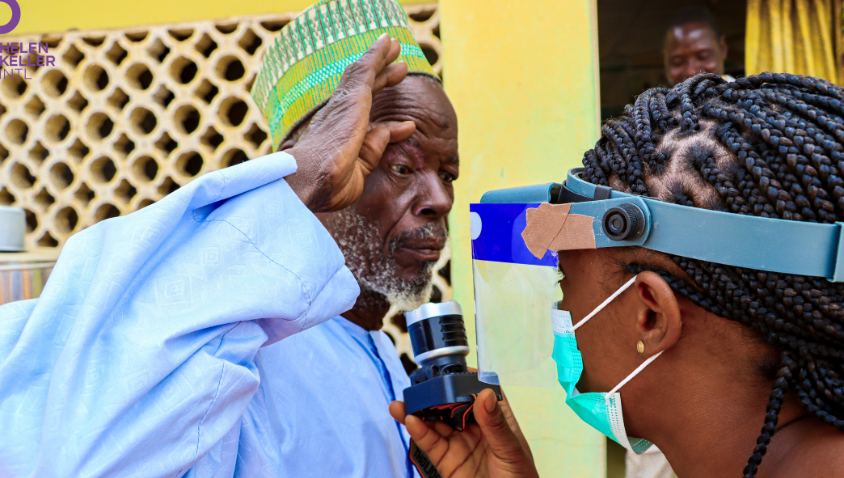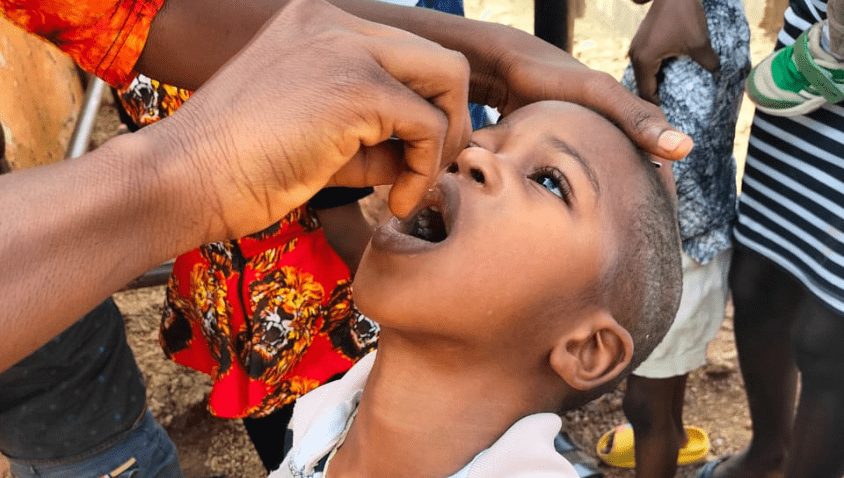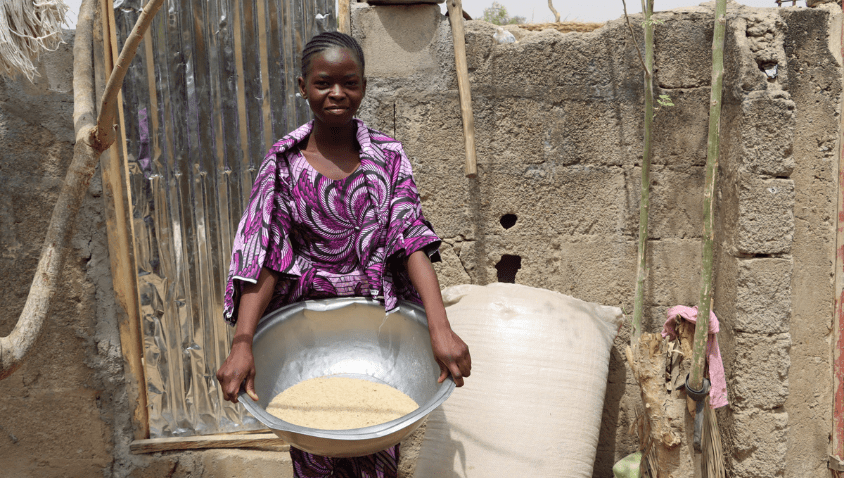Nigeria
Helen Keller Intl has worked in Nigeria since 1999 to help communities overcome barriers to health and nutrition. Despite multifaceted insecurity challenges affecting some of the areas in which we work, Helen Keller reaches children and families where they are, working closely with the government, community members, women’s groups, persons with disabilities, and other vulnerable persons, ensuring our leave-no-one behind legacy. By leveraging global best practices, our interventions address local problems on a large scale for the long term, improving the lives of millions of children and family members.

84% of all Nigerians are infected by at least 1 neglected tropical disease, suffering disfigurement, cognitive issues, economic hardships, and social stigma.

Millions of children are not getting enough vitamin A, impacting their ability to see clearly, fight off disease, and live a healthy life.

Nearly 25 million Nigerians are at risk of facing hunger due to continued conflict, extreme weather, and rising costs of nutritious foods.
Together, we help communities create lasting change by:
Working with the government to ensure people have access to essential care, including medication to prevent and treat diseases and corrective surgeries for trachoma and lymphatic filariasis infections.
Partnering with communities to ensure families have access to critical vitamins and nutrients needed to ensure good health and combat malnutrition.
Training women in climate-smart agricultural practices, helping them to sustainably grow nutrient-rich foods, despite extreme weather challenges.
Last year, we helped millions build lasting change
3.1 million people treated for at least 1 neglected tropical disease, greatly contributing to national efforts toward their control and elimination.
6.3 million children under the age of 5 received 2 doses of vitamin A, protecting their vision and health.
Supported more than 240 women supported with training on climate-smart farming practices so they can grow nutritious foods and generate income.
Number of staff: 138
Office opened: 1999
People reached annually: 22M
Operating budget: $12.6M
Latest stories and headlines from Nigeria
Our work in Nigeria is supported by:
- Church of Jesus Christ of Latter-day Saints, The END Fund, Gates Foundation, GiveWell, Sightsavers, USAID
